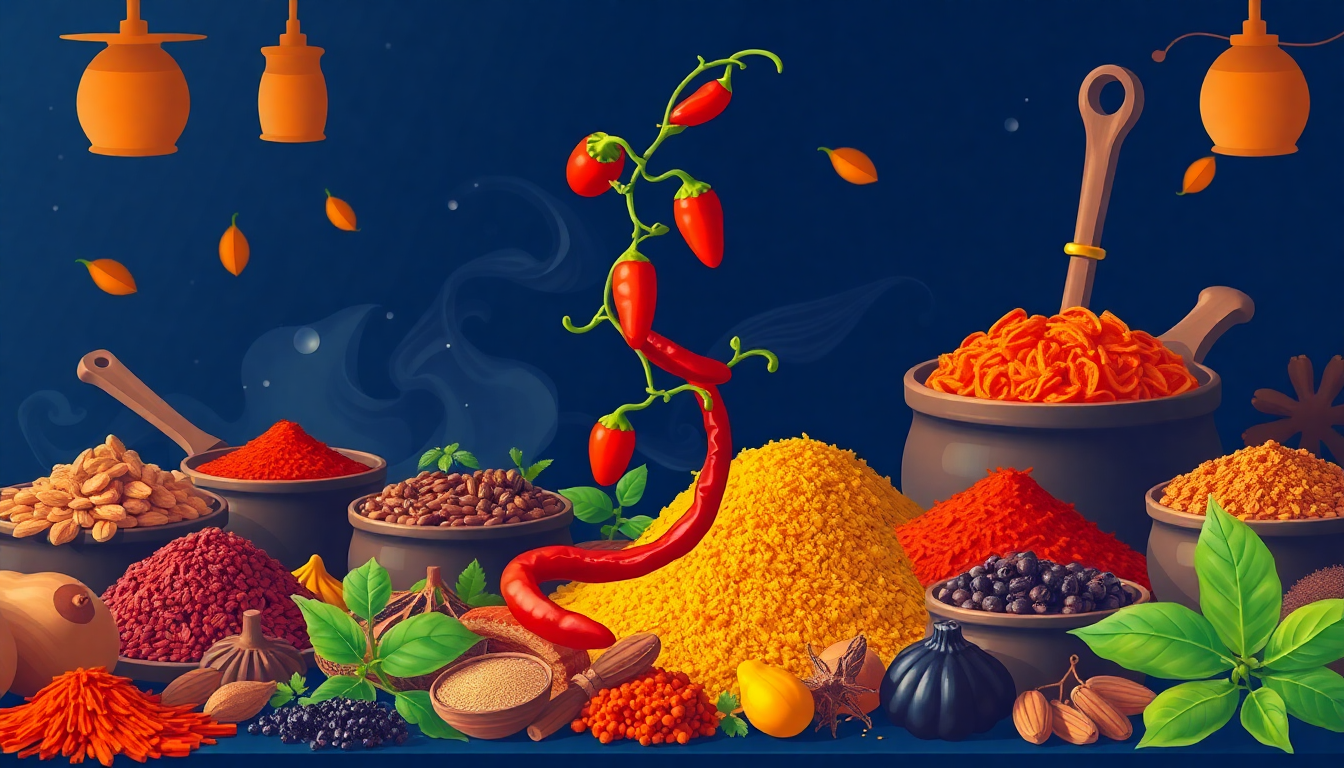The Forgotten Gem of Spices: Long Pepper
In the bustling world of modern kitchens, many spices have made their way to the forefront, garnishing dishes and inspiring culinary masterpieces. Yet, some ancient gems remain largely forgotten, waiting to be rediscovered. One such marvel is the long pepper, an aromatic and potent spice that once rivaled black pepper in both value and popularity.
A Journey Through Time
The long pepper, scientifically known as Piper longum, has a storied history tracing back to ancient civilizations. Used by Greeks and Romans, long pepper was prized not only for its intense flavor but also for its medicinal properties.
“Theophrastus, a Greek philosopher, mentioned long pepper in his work ‘Enquiry into Plants.’ Though lesser-known than black pepper today, it once commanded a higher price in ancient European markets.”
From ancient Indian Ayurvedic practices to medieval European recipes, long pepper has left its aromatic footprint on various cultures. Today, it’s time to unearth this forgotten gem and explore its culinary secrets.
Culinary Characteristics
Long pepper is notably distinct from the commonly used black pepper. Its appearance is unique, resembling a tiny pine cone, and its flavor profile is significantly more complex. The spice offers a robust combination of heat and sweetness, with subtle hints of earthiness and floral undertones.
Here are some key characteristics:
- Appearance: Cylindrical and elongated, resembling a small, dark pine cone.
- Flavor: A blend of pungent heat, sweetness, and subtle undertones of cinnamon and nutmeg.
- Aroma: Rich and spicy with a unique floral hint that sets it apart from black pepper.
Unlocking Culinary Secrets
Cooking with long pepper can be a delightful adventure for the senses. Its complexity allows it to enhance an array of dishes, from savory to sweet.
Here are some innovative ways to incorporate long pepper into your cooking:
- Savory Dishes: Crush long pepper and sprinkle it over grilled meats or roasted vegetables to add a fiery kick with a hint of sweetness.
- Soups and Stews: Use whole long pepper in broths and stews. Its slow release of flavors can add depth to your dishes.
- Baked Goods: Add a dash of ground long pepper to gingerbread or spice cookies for an exotic twist.
- Beverages: Infuse teas or cocktails with long pepper for a unique, warming spice note.
An Anecdotal Insight
The versatility of long pepper comes with fascinating stories. In a quaint village in Karnataka, India, a local chef known only as grandmother Radha is celebrated for her distinctive pickles. She insists that her secret lies in the meticulous use of long pepper, ground fresh and incorporated into her age-old recipe. This heirloom method has been passed down for generations, making her pickles a coveted delicacy in regional markets.
“Few spices can transform a dish so profoundly with just a pinch or a whiff,” recalls a food critic visiting Radha. “Long pepper not only enhances the flavor but etches a memory on your taste buds.”
The Health Benefits
Beyond its culinary merits, long pepper has been heralded for its health benefits. Ayurvedic medicine, dating back thousands of years, extols the virtues of long pepper for its ability to aid digestion, combat colds, and relieve pain.
Health benefits include:
- Digestive Aid: Known to stimulate appetite and improve digestive functions.
- Anti-inflammatory Properties: Contains compounds that help reduce inflammation and pain.
- Respiratory Relief: Used in traditional medicine to treat colds, coughs, and asthma.
- Antioxidant Properties: Rich in antioxidants, which help fight free radicals and maintain overall health.
Rediscovering a Timeless Spice
In summary, the art of cooking with long pepper promises to rekindle ancient flavors and infuse modern dishes with a touch of history and health. This spice, while overlooked in contemporary kitchens, holds a treasure trove of secrets waiting to be unleashed. As we delve into the past, the long pepper stands as a testament to the rich culinary traditions that span continents and centuries.
So, the next time you embark on a culinary adventure, consider reaching for the long pepper. Your taste buds—and perhaps even your health—will thank you for it.
